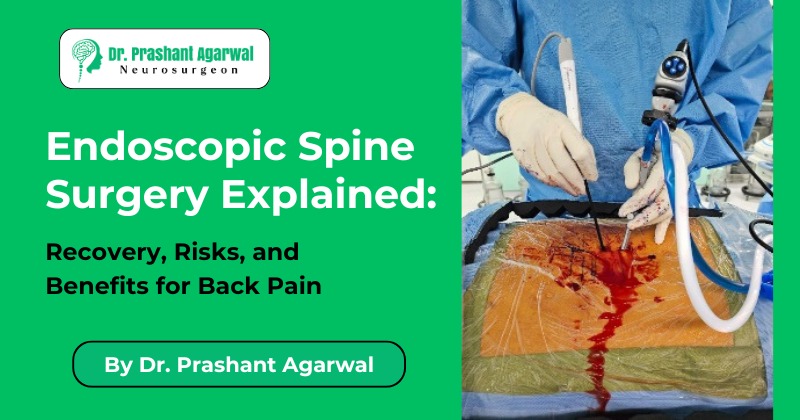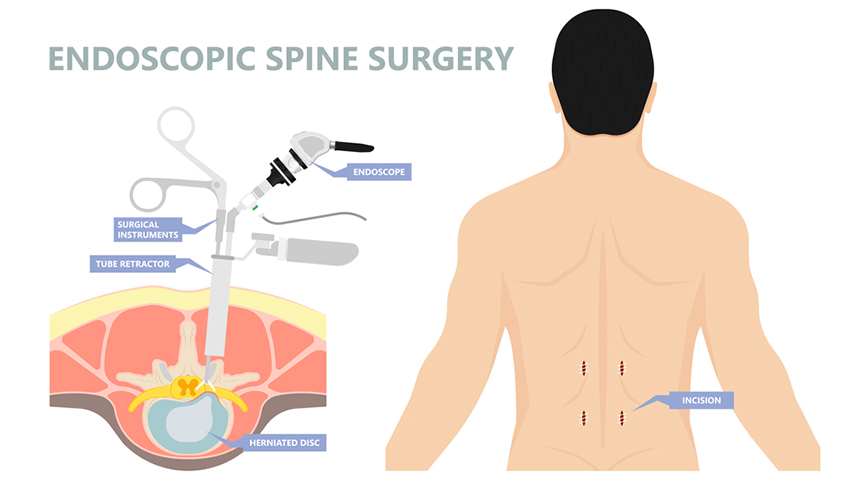


Back pain is a common ailment that affects millions of people worldwide, often leading to significant discomfort and disruption in daily life. Traditional open spine surgeries, though effective, come with their own set of challenges, including longer recovery times and greater risks. However, advancements in medical technology have led to minimally invasive procedures like endoscopic spine surgery, offering promising alternatives for those suffering from back pain. Dr. Prasant Agarwal, a renowned spine surgeon in Greater Noida, sheds light on this innovative technique, its recovery process, potential risks, and the benefits it offers to patients.

Endoscopic spine surgery is a minimally invasive surgical procedure used to treat various spine conditions, such as herniated discs, spinal stenosis, and degenerative disc disease. Unlike traditional spine surgery, which requires large incisions and significant muscle dissection, endoscopic spine surgery involves the use of a small endoscope and specialized instruments. The surgeon makes tiny incisions, through which the endoscope—a thin, flexible tube with a camera and light—provides a clear view of the spinal structures on a monitor.
This technique allows the surgeon to precisely target the affected area, remove damaged tissue, and relieve pressure on the nerves with minimal disruption to surrounding muscles and tissues.
Recovery Time
One of the significant advantages of endoscopic spine surgery is the relatively quick recovery time compared to traditional open spine surgery. Patients typically experience less postoperative pain and can often return to their normal activities sooner.
As with any surgical procedure, endoscopic spine surgery carries some risks, though they are generally lower compared to traditional methods. Understanding these risks can help patients make informed decisions about their treatment options.
The benefits of endoscopic spine surgery are numerous, making it an attractive option for many patients suffering from chronic back pain.
Endoscopic spine surgery represents a significant advancement in the treatment of spine conditions, offering a less invasive alternative with numerous benefits over traditional surgery. Dr. Prasant Agarwal in Greater Noida is dedicated to providing cutting-edge solutions to back pain, helping patients achieve better outcomes and improved quality of life.
If you’re struggling with chronic back pain and exploring your surgical options, consider consulting with Dr. Prasant Agarwal to determine if endoscopic spine surgery is right for you. With the potential for reduced pain, quicker recovery, and lasting relief, this innovative procedure could be the answer to your back pain woes.